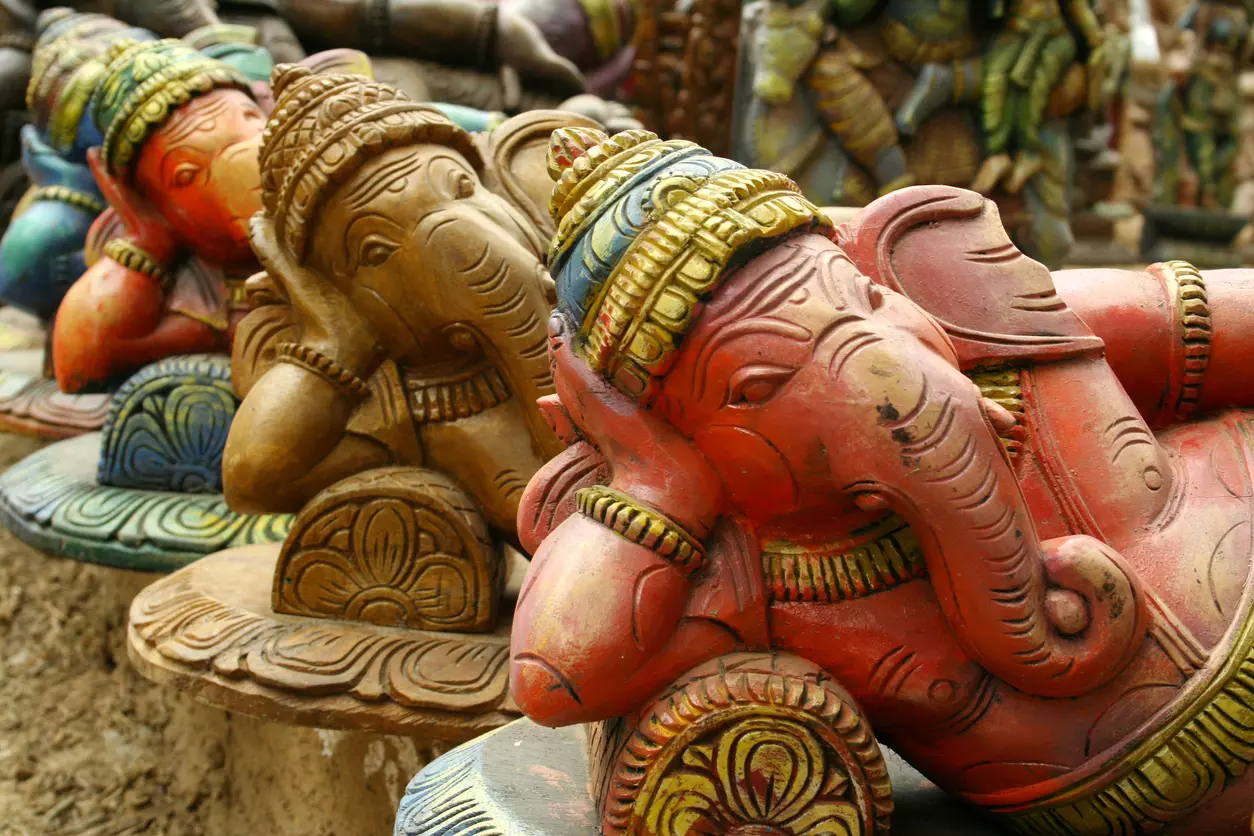
- Home
- India
- World
- Premium
- THE FEDERAL SPECIAL
- Analysis
- States
- Perspective
- Videos
- Sports
- Education
- Entertainment
- Elections
- Features
- Health
- Business
- Series
- In memoriam: Sheikh Mujibur Rahman
- Bishnoi's Men
- NEET TANGLE
- Economy Series
- Earth Day
- Kashmir’s Frozen Turbulence
- India@75
- The legend of Ramjanmabhoomi
- Liberalisation@30
- How to tame a dragon
- Celebrating biodiversity
- Farm Matters
- 50 days of solitude
- Bringing Migrants Home
- Budget 2020
- Jharkhand Votes
- The Federal Investigates
- The Federal Impact
- Vanishing Sand
- Gandhi @ 150
- Andhra Today
- Field report
- Operation Gulmarg
- Pandemic @1 Mn in India
- The Federal Year-End
- The Zero Year
- Science
- Brand studio
- Newsletter
- Elections 2024
- Events
- Home
- IndiaIndia
- World
- Analysis
- StatesStates
- PerspectivePerspective
- VideosVideos
- Sports
- Education
- Entertainment
- ElectionsElections
- Features
- Health
- BusinessBusiness
- Premium
- Loading...
Premium - Events

Assembly Speaker AN Shamseer's arguments against fundamentals of Hindu belief system profoundly deceptive, baseless, and overtly disrespectful
Kerala Legislative Assembly Speaker A N Shamseer's comments on Lord Ganesha have created a furore in Kerala, triggering heated debates and political mudslinging. The article is a counter-argument to the piece ‘Kerala Ganesh head row: Why India has had a troubled history with myth’ published in The Federal on August 18)
Kerala Assembly Speaker AN Shamseer recently sparked a controversy by questioning the fundamentals of the Hindu belief system. During a public address to students as part of a state government initiative, he referred to several Hindu concepts as unsubstantiated myths. He emphasised the importance of nurturing scientific temper, as directed by Article 51A(h) of the Constitution. While the cultivation of scientific thinking is undoubtedly valuable, Shamseer's arguments were profoundly deceptive, baseless, and overtly disrespectful.
Hindutva is not Hinduism
Scientific temper should foster a culture of logical and rational thinking. However, this objective should not come at the expense of disseminating falsehoods. In his address, Shamseer contended that our educational system was passing off ‘myths’ as ‘truths’, alleging that it propagated the notion that the first instance of plastic surgery involved attaching an elephant’s head to a boy’s torso, which was supposedly performed on Lord Ganesha. He went on to assert that in the past, students were rewarded for identifying the Wright brothers as the inventors of the airplane, while today, the expectation would be to attribute the airplane's invention to the 'Hindutva era'.
In the first place, no curriculum anywhere in the country prescribes any textbook that contains such wrong information. Furthermore, Shamseer's notion of the 'Hindutva era’ is significantly misconstrued. Hindutva, a term coined by Vinayak Savarkar in the 20th century, is distinct from Hinduism, which dates back thousands of years. In one fell swoop, Shamseer attempted to construct a strawman argument by conflating Hinduism with Hindutva — a religion intertwined with a political ideology—so as to criticise that particular ideology. The fact that he chose to draw such a parallel between the two suggests an underlying motive, especially since the event was intended to be apolitical, and the students present were not meant to be subjected to political discourse.
Doublespeak
While it might be comprehensible for an atheist or someone who identifies as religiously agnostic to criticise diverse religious beliefs and categorise them as myths, Shamseer has exhibited a contrasting approach in the past. He has openly lauded his own faith, Islam, on multiple occasions, both in public speeches and television debates. He has expressed deep respect for the supernatural aspects of Islam and has attributed significant progressiveness to the religion. He has also highlighted how Islam has provided considerable protection to women, positioning it as a religion that has been particularly supportive of women's rights.
This contrasting treatment of the two belief systems reveals a clear personal bias on Shamseer's part, consequently tarnishing his credibility. His dissemination of falsehood and incorrect references regarding the Hindu belief system reflects a blatant disregard that has caused significant offense to Hindus. As both an elected representative and a holder of a Constitutional position, it is incumbent upon Shamseer to honour the trust placed in him by all segments of society.
While Shamseer's personal beliefs might range from atheism to practicing Islam, as evidenced by his reluctance to disclose his stance during a press conference following the controversy, his duty extends to safeguarding the interests of all individuals, including those who follow the Hindu faith. Notably, it is intriguing that Shamseer's party's state secretary, M V Govindan, initially echoed his perspective on 'Hindu myths', but subsequently withdrew his statement when similar questions arose pertaining to Islam.
Scientific temper
Shamseer's interpretations of both scientific temper and the Constitution appear to be fundamentally flawed. The notion of scientific temper was introduced into the Constitution through the 42nd amendment, not as a means to scrutinise the validity of religious beliefs. The Constitution, as outlined in Articles 25 and 26, bestows upon individuals the fundamental right to profess, practise, and propagate their religious beliefs in accordance with their faith's tenets. These concepts are not inherently contradictory, as their coexistence demonstrates.
For instance, one can challenge unfounded remedies for illnesses or the spread of pseudoscience by upholding scientific temper, as stipulated by Article 51A(h). While it is permissible to question claims like the first plastic surgery being performed on Lord Ganesha, it is important to note that no educational institution in the country has taught such a narrative; it was, in fact, a fabrication by Shamseer. For the sake of comparison, Article 51A(e) mandates the promotion of harmony and a sense of universal brotherhood among all individuals, transcending religious differences. In a way, by misinterpreting Article 51A(h), Shamseer contributed to societal unrest by potentially violating Article 51A(e).
Role of religion, spiritualism in human development
Both religion and spiritualism have been applied practically in the realms of scientific counselling and human development. As evidenced by examples like the United States Department of Army's Holistic Health and Fitness field manual, spiritual principles have been incorporated as integral aspects of a soldier's readiness program. The manual acknowledges that "Spiritual readiness develops the personal qualities a person needs in times of stress, hardship, and tragedy. These qualities come from religious, philosophical, or human values and form the basis for character, disposition, decision making, and integrity." This recognition underscores the valuable role that religious and spiritual beliefs can play in fostering qualities crucial for handling challenges and maintaining personal well-being.
Religion and spiritualism have demonstrated their capacity to facilitate positive transformations among incarcerated individuals within penitentiaries, leading them toward personal growth and improvement. On a global scale, they have been harnessed as effective tools for rehabilitating individuals grappling with substance use disorders.
Even amidst his own reservations about religious faiths, Jawaharlal Nehru was unequivocal in acknowledging the substantial contributions of religious beliefs in human development. He recognized that religions had provided solace to countless human beings, established guiding principles for human conduct, contributed to societal stability through their values, and played a significant role in advancing the progress of humanity.
It's not binary; there’s a third option
In matters of religion, individuals like Shamseer tend to view concepts that don't align with logic and science as myths. However, the reality is more nuanced, as the world isn't confined to a binary system. There exists a third option known as 'belief'. All ideologies, whether they pertain to religious faith or political systems like Communism, fall into this category. When scrutinised through the lenses of logic and science, these ideologies might not pass muster. A belief remains intact primarily because it doesn't require empirical proof — it exists in a sphere where proof is not mandatory. Within the context of the Hindu belief system, the Itihasas, Upanishads, and Puranas hold fundamental significance. Any individual who practices Hinduism retains the prerogative to hold faith in these texts.
Despite the presence of theories advocating scientific temper and logic, the Indian legal system does not summarily dismiss the rights attributed to a deity. Instead, it upholds and acknowledges these rights, recognising the significance of religious beliefs within the framework of the law. Under Indian law, Hindu deities are treated as juristic minors, endowed with rights akin to holding property and engaging in legal suits. A noteworthy illustration of this concept can be observed in the Ayodhya title deed case, where the disputed land was ultimately awarded to the petitioner Ram Lalla Virajman, the presiding deity of the Ayodhya temple. This decision reflects the legal acknowledgment of the deity's rights.
Old wisdom
Shamseer would do well to acknowledge that Hindu beliefs encompassed remarkable concepts like plastic surgery, airplanes, and in vitro fertilization, even before these ideas materialised through technological advancements. As noted by Julius Robert Oppenheimer, "The general notions about human understanding, which are illustrated by discoveries in atomic physics, are not in the nature of things wholly unfamiliar, wholly unheard of, or new. Even in our own culture, they have a history, and in Buddhist and Hindu thought, a more considerable and central place. What we shall find is an exemplification, an encouragement, and a refinement of old wisdom."
This perspective underscores the idea that ancient traditions and philosophies, such as those found in Buddhist and Hindu thought, often contain deep wisdom and insights that resonate even with modern discoveries and scientific advancements. The interconnectedness between historical beliefs and contemporary knowledge serves as a reminder of the ongoing evolution of human understanding.
It's important for individuals in positions of influence, like Shamseer, to demonstrate respect for all religions, especially if they value their own religion and uphold the principles of the Constitution. Respecting diverse beliefs fosters social harmony and upholds the principles of religious freedom enshrined in the Constitution. Encouraging mutual respect and understanding among different religious communities contributes to a more inclusive and cohesive society. As Fritjof Capra put it, “Science does not need mysticism and mysticism does not need science. But man needs both.”
(The writer is a political debater and an independent researcher)
(The Federal seeks to present views and opinions from all sides of the spectrum. The information, ideas or opinions in the articles are of the author and do not necessarily reflect the views of The Federal)


